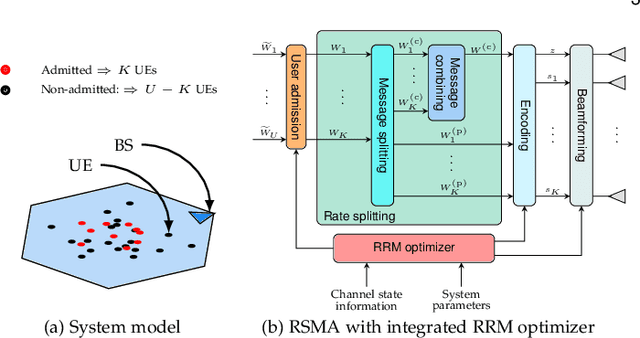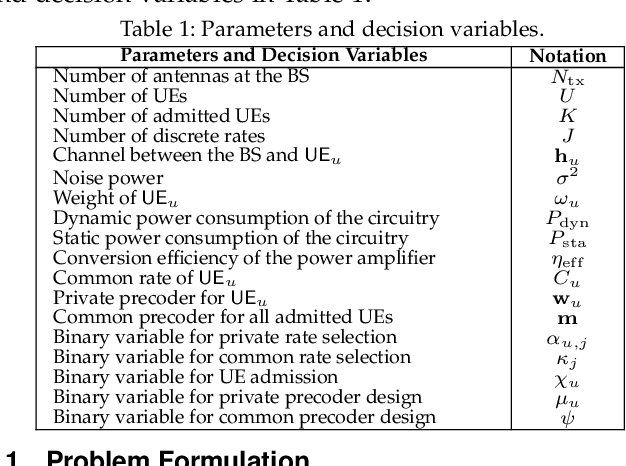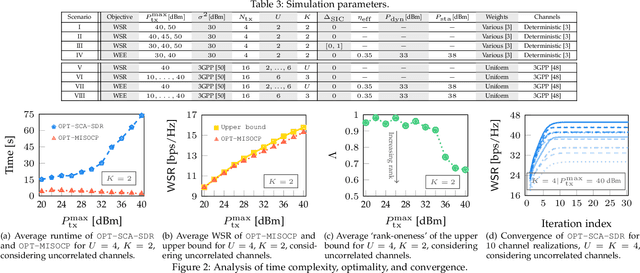R. Schober
Radio Resource Management Design for RSMA: Optimization of Beamforming, User Admission, and Discrete/Continuous Rates with Imperfect SIC
Apr 30, 2024



Abstract:This paper investigates the radio resource management (RRM) design for multiuser rate-splitting multiple access (RSMA), accounting for various characteristics of practical wireless systems, such as the use of discrete rates, the inability to serve all users, and the imperfect successive interference cancellation (SIC). Specifically, failure to consider these characteristics in RRM design may lead to inefficient use of radio resources. Therefore, we formulate the RRM of RSMA as optimization problems to maximize respectively the weighted sum rate (WSR) and weighted energy efficiency (WEE), and jointly optimize the beamforming, user admission, discrete/continuous rates, accounting for imperfect SIC, which result in nonconvex mixed-integer nonlinear programs that are challenging to solve. Despite the difficulty of the optimization problems, we develop algorithms that can find high-quality solutions. We show via simulations that carefully accounting for the aforementioned characteristics, can lead to significant gains. Precisely, by considering that transmission rates are discrete, the transmit power can be utilized more intelligently, allocating just enough power to guarantee a given discrete rate. Additionally, we reveal that user admission plays a crucial role in RSMA, enabling additional gains compared to random admission by facilitating the servicing of selected users with mutually beneficial channel characteristics. Furthermore, provisioning for possibly imperfect SIC makes RSMA more robust and reliable.
Impact of NOMA on Age of Information: A Grant-Free Transmission Perspective
Nov 24, 2022



Abstract:The aim of this paper is to characterize the impact of non-orthogonal multiple access (NOMA) on the age of information (AoI) of grant-free transmission. In particular, a low-complexity form of NOMA, termed NOMA-assisted random access, is applied to grant-free transmission in order to illustrate the two benefits of NOMA for AoI reduction, namely increasing channel access and reducing user collisions. Closed-form analytical expressions for the AoI achieved by NOMA assisted grant-free transmission are obtained, and asymptotic studies are carried out to demonstrate that the use of the simplest form of NOMA is already sufficient to reduce the AoI of orthogonal multiple access (OMA) by more than 40%. In addition, the developed analytical expressions are also shown to be useful for optimizing the users' transmission attempt probabilities, which are key parameters for grant-free transmission.
 Add to Chrome
Add to Chrome Add to Firefox
Add to Firefox Add to Edge
Add to Edge